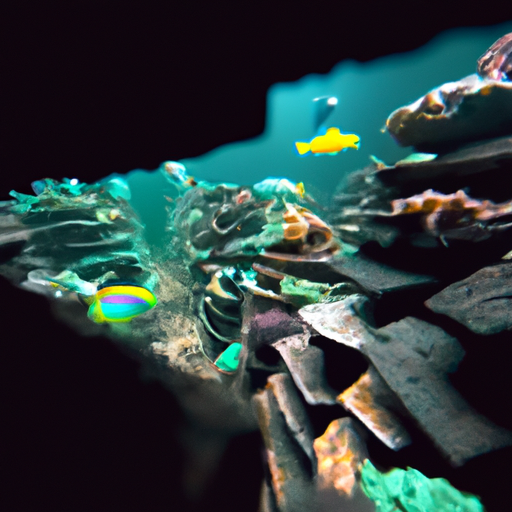-
Table of Contents
What happens if sea life dies?

Sea life plays a crucial role in maintaining the balance of our planet’s ecosystems. The extinction of sea life would have severe consequences not only for marine biodiversity but also for the overall health of our planet. Let’s explore the potential impacts of sea life extinction and the consequences it would have on the oceanic ecosystem.
Sea Life Extinction
If sea life were to become extinct, it would disrupt the delicate balance of the oceanic ecosystem. Marine species, such as fish, whales, dolphins, and sharks, are essential for maintaining the food chain. Without them, the entire ecosystem would collapse, leading to a domino effect of negative consequences.
One of the immediate impacts of sea life extinction would be the disruption of the food web. Many marine animals rely on smaller fish and plankton as their primary food source. If these prey species disappear, larger predators would struggle to find food, leading to a decline in their populations.
Additionally, sea life extinction would have a significant impact on the fishing industry. Millions of people around the world depend on fishing as their primary source of income and food. The loss of fish populations would devastate coastal communities and lead to economic instability.
Oceanic Ecosystem Consequences
The extinction of sea life would disrupt the entire oceanic ecosystem, leading to a cascade of consequences. One of the most significant impacts would be the decline in coral reefs. Coral reefs are home to a vast array of marine species and provide essential habitats for many organisms. Without sea life, coral reefs would deteriorate, leading to a loss of biodiversity and the destruction of these fragile ecosystems.
Furthermore, the absence of sea life would result in the accumulation of dead organic matter in the ocean. Marine animals play a crucial role in the decomposition process by feeding on dead organisms and recycling nutrients back into the ecosystem. Without them, the ocean would become a stagnant and polluted environment.
Another consequence of sea life extinction would be the disruption of carbon sequestration. Marine plants, such as phytoplankton, absorb carbon dioxide from the atmosphere through photosynthesis. They play a vital role in mitigating climate change by acting as carbon sinks. If sea life were to die off, the capacity of the ocean to absorb carbon dioxide would be significantly reduced, leading to increased greenhouse gas levels in the atmosphere.
Marine Biodiversity Loss Impact
The loss of sea life would result in a significant decline in marine biodiversity. The ocean is home to a vast array of species, many of which are yet to be discovered. Each species plays a unique role in maintaining the balance of the ecosystem.
One of the impacts of marine biodiversity loss would be the loss of potential medical breakthroughs. Many marine organisms have unique biochemical properties that could hold the key to developing new medicines and treatments. With the extinction of sea life, we would lose the opportunity to unlock these potential discoveries.
Additionally, the loss of marine biodiversity would have a profound impact on ecotourism. Many people travel to coastal areas to witness the beauty of marine life, such as coral reefs and marine mammals. Without sea life, these ecosystems would deteriorate, leading to a decline in tourism and economic losses for coastal communities.
Conclusion
The extinction of sea life would have far-reaching consequences for our planet. It would disrupt the delicate balance of the oceanic ecosystem, leading to the collapse of the food chain, the decline of coral reefs, the accumulation of dead organic matter, and the disruption of carbon sequestration. Furthermore, the loss of marine biodiversity would result in the loss of potential medical breakthroughs and economic losses in the tourism industry.
It is crucial that we take immediate action to protect and preserve sea life. By implementing sustainable fishing practices, reducing pollution, and creating marine protected areas, we can ensure the survival of these vital species and safeguard the health of our oceans for future generations.